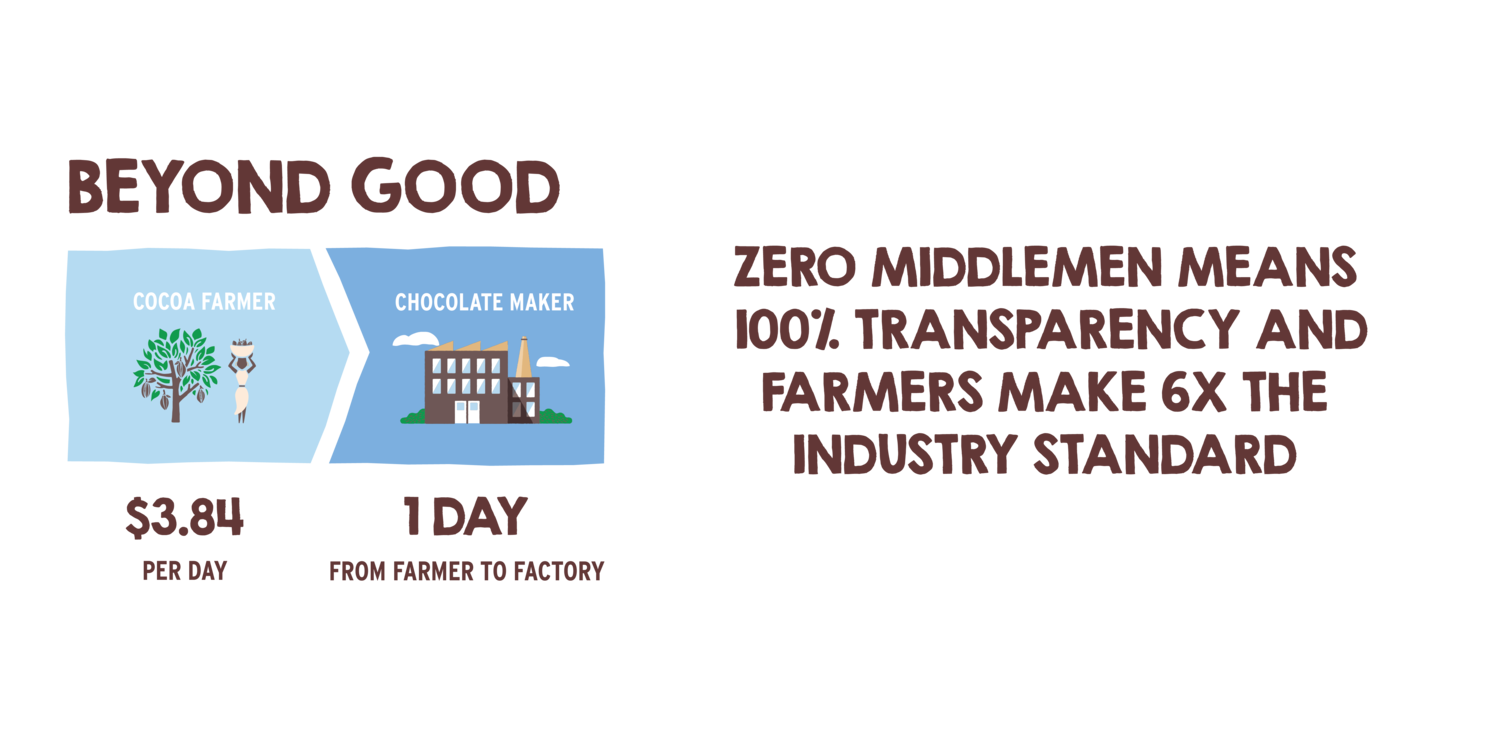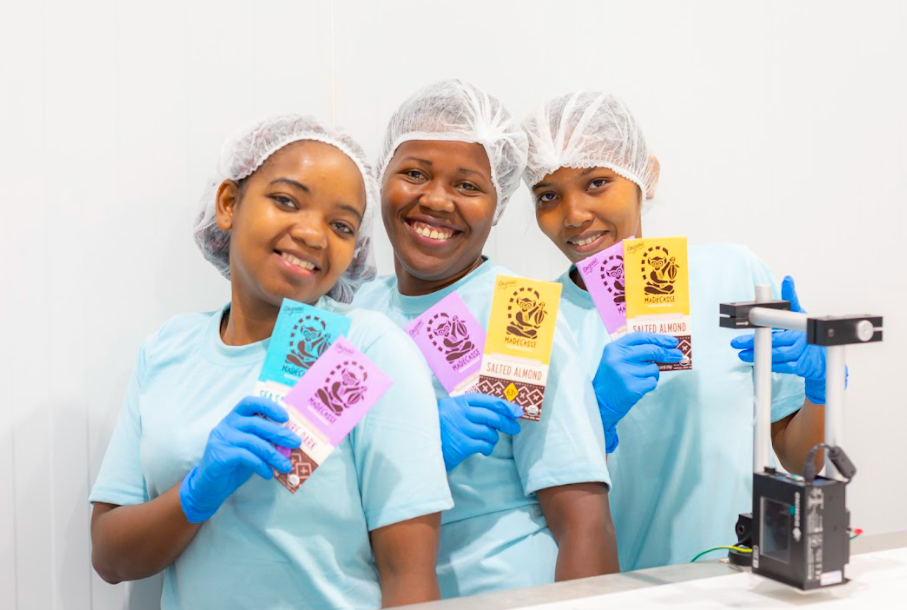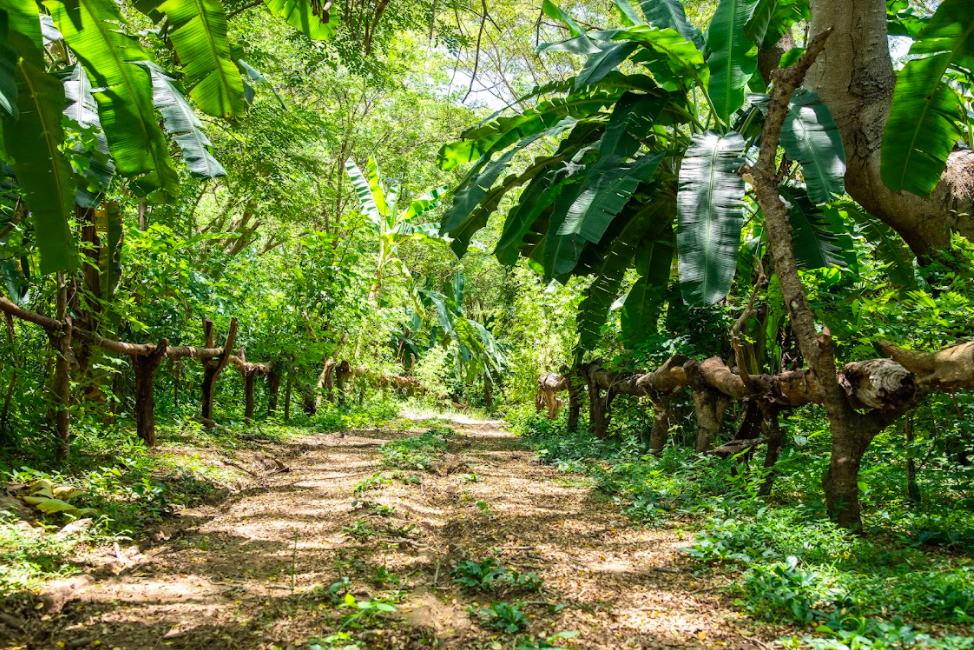
If Madagascar-based Beyond Good’s founder Tim McCollum’s life were one of those “based on a true story” films, the director had better open the first scene like this (assuming these types of films take creative liberties):
“A driver whips quickly yet slyly around a bend at the port, looking to surprise the team he’s been working with for the past several years. He spots them, pulls close to the curb and unwinds his hand-crank window while giving a toothy smile to the unsuspecting group he’s picking up. Tim, the group leader, inches closer, not believing his eyes. He dramatically takes off his sunglasses to confirm what he sees. It’s true. One of his smallholder farmers has his very own truck. And they’re about to go for a ride.”
It hasn’t all been toothy smiles and pickup trucks — the journey to building a sustainable, transparent, profitable chocolate company in one of the poorest countries in the world has been as bumpy as the 435-mile (700-kilometer) road that connects the smallholder cocoa farms to the factory based in Madagascar’s capital, Antananarivo.

Beyond Good started in 2008 with a simple mission: Manufacture chocolate at the origin. Traditionally, the life of a cocoa pod farmed in Madagascar is exhausting, moving from farmer to middleman to another middleman (and maybe even another middleman or two) to an exporter to a foreign factory. This cycle is especially true in cocoa-rich West African countries like Ghana and Cote d’Ivoire, where cocoa is commoditized en masse, tainting its identity and richness in the process.
McCollum’s company sought to disrupt this supply chain. Cutting out the upwards of five middlemen and establishing an in-country chocolate making factory, he thought, was the recipe for success (pun intended). Not only would it improve the quality and transparency of chocolate since the cocoa could be easily traced back to a specific grower, but it crucially put more money into the pockets of the farmers. No middlemen meant no shaving money off at each stage of the supply chain.
And withstanding growing pains from Madagascar’s poor infrastructure and well-placed hesitation from farmers, Beyond Good’s model worked. By the company’s calculation, its farmers earn $3.84 a day, five to six times that of their West African counterparts, and nearly triple Madagascar’s GDP per capita.

“It took five years to get to a point where we would walk into a village and a farmer would trust us,” McCollum told TriplePundit, also noting his Peace Corps experience in Madagascar contributed to breaking down those walls. “The turning point was when it started to work. Farmers could tie their increase in standard of living to what they had done themselves, which was farm better cocoa and get paid more money for it. That’s when it takes off like wildfire in a community.”
Word of mouth travels quickly in a small village, especially when your neighbor buys a truck from the profits he’s made as a farmer. Beyond Good now has 93 farmers, though that number is climbing and expected to reach 120 by the end of March of next year. That’s in addition to the 50 chocolate makers it employs in its factory in Madagascar’s capital Antananarivo. In 2021, McCollum expects the company to churn out between 3 million to 4 million chocolate bars — three-quarters of which are made at its Madagascar-based factory while the others are produced at a factory in Italy to diversify risk and meet growing production numbers. Sales, meanwhile, are driven almost exclusively through the United States, at markets like Whole Foods, Sprouts, and online on Beyond Good’s website and Amazon.
The goodness of Beyond Good lies also in its less-intended consequences. Deforestation due to cocoa production is a major black mark on the chocolate industry, especially in West Africa where two-thirds of the world’s cocoa originates. For example, Mars Inc., one of the world’s most recognizable chocolate makers, fell short on a 2009 pledge to entirely end deforestation from its business within 10 years. In the last 50 years, Cote d’Ivoire has lost an estimated 80 percent of its forest, some of which can be traced to farmers cutting down large swathes of protected forests to expand their plots.
“Anytime someone bites on a chocolate bar in the United States, a tree is being cut down,” Eric Agnero, an environmental activist from Ivory Coast, told the Washington Post in 2019.
Beyond Good farmers have taken the opposite approach: agroforestry and reforestation. Instead of chopping down forests to pave the way for additional plot land, the farmers have been converting rice lands into new shaded areas where cocoa pods sprout alongside banana, jackfruit and citrus trees. The result is a beautiful canopy, a sustainable crop and a home for a lemur population that has borne the brunt of Madagascar’s disappearing forests. Beyond Good commissioned the England-based Bristol Zoological Society to study lemur conservation in and around the canopies where their farmers harvest cocoa. Six months of studying night cameras, camping under the shade trees, and recording intensive interviews with the farmers confirmed five or six lemur species living among the canopy.

“We never asked a single farmer to plant a tree,” McCollum said. “The incentives with our partnership were so good that they did it on their own. We were excited to start doing this in a corner of the country where it was baked into our business, which is much more sustainable than a one-off project. It’s happening naturally because people are incentivized to do it on their own.”
Child labor has also marred the chocolate industry. Despite two decades of promising to eradicate child labor from its supply chain, critics of chocolate giants such as Hershey, Nestlé and Mars say the companies continue to turn a blind eye from who is doing the heavy lifting. Lack of transparency drives this problem. As the Washington Post’s Peter Whoriskey and Rachel Siegel exposed child labor in the cocoa industry of West Africa, they also concluded that Mars could trace only 24 percent of its cocoa back to farms. Hershey and Nestlé were also unable to trace the majority of their cocoa to its source. Even if the companies’ intentions to end child labor are genuine, the lack of visibility into where their supply is coming from makes it impossible to guarantee that children are kept on the sidelines and prevented from working on these farms
Beyond Good, on the other hand, has full transparency into where its cocoa is coming from. As a result, the company says that to date it has not experienced any instances of child labor.

McCollum is convinced that this business model isn’t limited to the confines of the east African island country. His confidence will be put to the test soon as Beyond Good expands its operations to Uganda, with its eyes set on opening a factory (or two or three) in 2022.
Business model aside, McCollum also credits Beyond Good’s success to the genetics of the cocoa in Madagascar, which he says “tastes different and has more flavor” than cocoa found anywhere else in the world.
“It’s important from a sustainability point of view because since it’s a higher quality cocoa, we can pay farmers a lot more for it,” McCollum said. “The road through sustainability as it relates to farmer poverty goes through better quality cocoa.”
Image credits: Beyond Good
Based in Atlanta, GA, Grant is a nonprofit professional and freelance writer passionate about affordable housing and finding sustainable approaches to international development. A proud graduate of the University of Maryland, Grant spent four months post-grad living in Armenia where he worked for Habitat for Humanity and the World Food Programme. He enjoys playing trivia with friends but is still seeking his first victory - he ceaselessly blames his friends lack of preparation.














